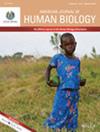Food Insecurity and Nutritional Status Among Pregnant Women Living in Socio-Economic Vulnerability in the Metropolitan Area of Buenos Aires (Argentina)
Abstract
Objective
To analyze food insecurity (FI) in pregnant women from the Metropolitan Area of Buenos Aires (AMBA) and its association with socio-economic variables and nutritional status, as well as to identify dietary patterns in women experiencing moderate and severe FI.
Methods
Between July 2021 and September 2023, an observational and cross-sectional study was performed. Data from 349 women was recorded in public health centers of disadvantaged urban areas. FI was assessed with the Food Insecurity Experience Scale (FIES), and the nutritional status was evaluated using the body mass index by gestational age. Chi-square, Spearman, and Wilcoxon tests were used to examine associations between FI, nutritional status, socioeconomic conditions, and dietary patterns.
Results
Only 30% of interviewed women were classified as food secure, while 31% experienced moderate FI and 11.5% severe FI. Among socio-economic variables, fewer years of formal education and critical overcrowding were significantly associated with FI. A large part of the sample (68%) had some type of malnutrition (overweight or obesity: 52.7%, undernutrition: 11.2%), which was also significantly associated with FI. Dietary patterns differed between women with moderate and severe FI, with the latter consuming less healthy and more processed foods.
Conclusions
Our results suggest that women in reproductive ages living in urban areas from the AMBA region have elevated levels of FI, especially moderate FI, even when compared with other vulnerable populations from Latin America. This study confirmed that FI is related to different types of maternal malnutrition, which constitutes a prenatal adversity with diverse potential effects on the offspring.

 求助内容:
求助内容: 应助结果提醒方式:
应助结果提醒方式:


